35% Say U.S. Heading in Right Direction
Thirty-five percent (35%) of Likely U.S. Voters think the country is heading in the right direction, according to a new Rasmussen Reports national telephone and online survey for the week ending December 8.

Thirty-five percent (35%) of Likely U.S. Voters think the country is heading in the right direction, according to a new Rasmussen Reports national telephone and online survey for the week ending December 8.
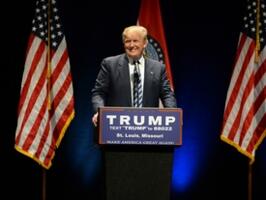
Most voters believe Donald Trump is likely to do things as president to make himself more money but still think he is no more unethical than other politicians.

Some Trump opponents have questioned the president-elect’s decision to include several former top military officers in his Cabinet including one as secretary of Defense, but most voters don’t have a problem with that call.
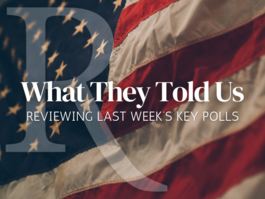
Following a brief respite over the Thanksgiving holiday, president-elect Donald Trump got back to work this week making moves that mostly pleased his supporters and infuriated his critics.

"A shining city on a hill," Ronald Reagan called America (by way of the Puritan authoritarian John Winthrop). "We are great because we are good," Hillary Clinton said during the campaign (via Tocqueville). Michelle Obama, earlier this year: "This right now is the greatest country on Earth."
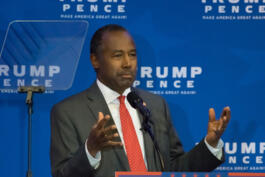
Democrats dislike President-elect Donald Trump's Cabinet picks to date, but Republicans are pretty happy with them. One of his more high-profile picks, former Republican primary rival Ben Carson, is much more familiar to voters now than he was in the early days of the presidential campaign.

The wailing and keening over the choice of Oklahoma Attorney General Scott Pruitt to head the EPA appears to be a lead indicator of a coming revolution far beyond Reagan's.
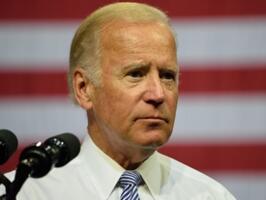
Vice President Joe Biden flirted this week with the possibility of running for president in 2020. But while his fellow Democrats like Biden a lot, they strongly feel their party needs to run a newcomer for the White House next time around.

It's been a tough decade for the political left. Eight years ago, a Time magazine cover portrayed Barack Obama as Franklin Roosevelt, complete with a cigarette and holder and a cover line proclaiming, "The New New Deal." A Newsweek cover announced, "We Are All Socialists Now."

Most Americans still say Jesus is the “reason for the season,” and want to keep the focus on Christmas when it comes to store signs.

President-elect Donald Trump repeatedly promised during his campaign that he would dismantle the “disastrous” nuclear deal the Obama administration negotiated with Iran last year. Voters doubt Iran will hold up its end of the bargain but are closely divided as to whether the new president should keep the deal or renegotiate it.

A potential silver lining for Democrats is that they head into the 2018 midterm as the party that does not hold the White House, and the “out” party typically makes gains down the ballot in midterms. But it will be difficult for Democrats to make Senate gains in 2018: Despite being in the minority, they face a near-historic level of exposure in the group of Senate seats being contested in two years, Senate Class 1.
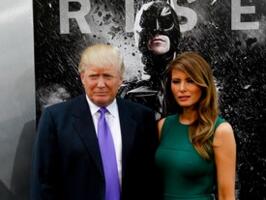
Partisan politics even invade attitudes about the president's wife as our first survey about incoming first lady Melania Trump shows.

If the definition of insanity is doing the same thing over and over again while expecting a different outcome, then Donald J. Trump is curing insanity in American politics.

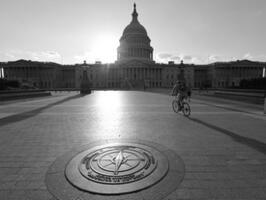
Republicans will soon control both Congress and the White House, and GOP voters strongly believe the country will be better off. Most Democrats and unaffiliated voters don’t share that confidence.

President-elect Donald Trump's first decisions were exciting. His new team seems to include good people like Betsy DeVos, Andy Puzder and Paul Atkins.

It’s been an interesting year for House Speaker Paul Ryan who has gone from publicly denouncing his party's presidential nominee Donald Trump to enthusiastically embracing the new president-elect. But the GOP speaker is now much more popular with his fellow Republicans and is better liked by all voters than any other congressional leader of either major party.

Sometimes life forces us to make decisions, even when we don't have enough information to know how the decision will turn out. The risks may be even greater when people make decisions for other people. Yet there are some who are not only willing, but eager, to take decisions away from those who are directly affected.
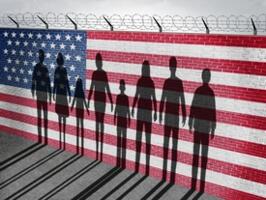
Republican support for building a wall on the U.S.-Mexico border right away remains strong, but other voters are growing even less enthusiastic. With it or without it, voters are closely divided over whether President-elect Trump and the GOP Congress can stop illegal immigration into this country.